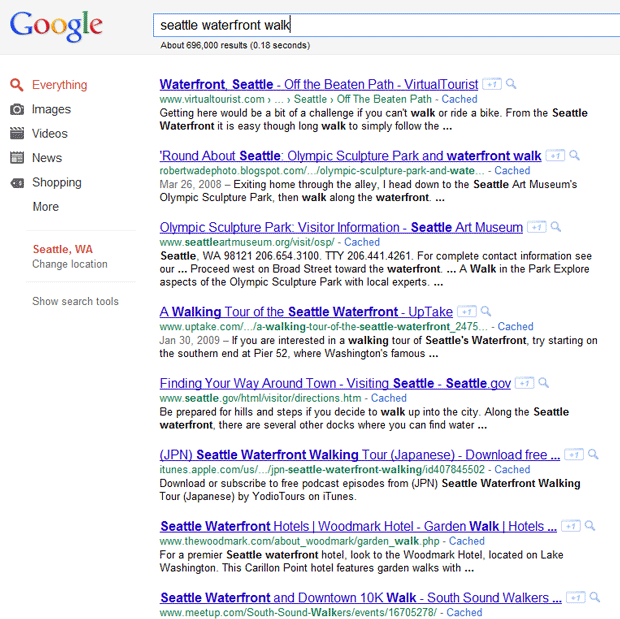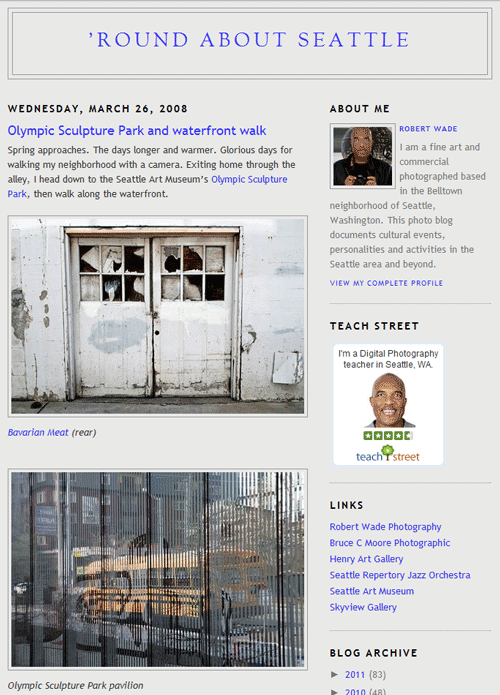
A Theory About Google: Authenticity and Passion as Ranking Signals
The author's views are entirely their own (excluding the unlikely event of hypnosis) and may not always reflect the views of Moz.
I look at a lot of search results every week, trying to parse out why some are ranking higher than others, what Google + Bing are adding to the results and where we might better add value with software. I still feel a serious addiction to mysteries in the search results and can't help but play detective (even when I know I should be doing other work). Over the past 6-9 months, I've been getting the sense that there's something new in Google's algorithm - a metric or set of metrics that looks for some form of authenticity in a site and passion in the content created on a page.
These aren't things a machine or algorithmic system has been traditionally able to measure, but (can I say this without sounding crazy?) I can feel it. Talking to lots of other SEOs in the past few weeks (thanks to events like Expon in São Paulo and Mozcon here in Seattle), I feel better - like I'm not alone.
Finding examples is next to impossible. There's so many reasons a site or page might outrank another that putting up a screenshot of any given set of SERPs feels like an invitation to be ridiculed. But I can describe the results where this feeling pops up:
- A site/page ranks in competitive results but doesn't have the link profile, domain authority or social metrics to perform at quite that level
- It often comes from a small, personal or niche website and is a lengthier article or piece of prose, usually rich with images and well-formatted
- There's almost always a sense that the piece is less commercial and more personal than other results, particularly in commerce-focused queries
- The result feels like it has no SEO whatsoever, often not even a focus on keyword targeting or on-page work. It almost seems to rank in spite of itself, or the lack of knowledge the author/creator has about the rankings process
- It's almost always interesting and enjoyable; like stumbling across a great independent shop in the midst of a big-brand retail district
OK... Maybe I will try to find a result.
Wow. That actually only took me a half dozen queries. It's not a perfect example, but here, have a look:

So it's not the most commercial or competitive query in the world, but all the results, save one, feel very familiar - they feel targeted, intentional and even good. There's nothing wrong with the sites and pages doing some SEO or trying to pull in searches for those seeking advice on walking Seattle's waterfront, but.... See that second result?
Yeah, this one:

There's something different about it. And if you click through (I won't link, even though it's a great 5-minute browse, so as not to potentially influence its rankings) you can definitely feel that Robert Wade, who wrote the piece and took the photographs, has no formal effort to rank for this query nor any of the many combinations of the phrase (nearly all of which contain that page in the top 5). Here's a screenshot of the blog post, which contains basically all of the text in the document (the rest of the post is photos).

If I were to list things that Google might be looking at to discover authenticity through an algorithmic process, it would include things like:
- Design & UI Quality (possibly via quality raters or the machine learning layers on top of user data)
- About/Contact details (looking for authentic about + contact information to confirm the site is created by a real person/team)
- Connections to the rest of the web (social accounts, job posts, a resume, partners, clients, etc)
- Diversity of traffic sources (authentic sites/pages get referral traffic, social traffic, clicks from emails and, yes, some search too)
- An offline presence in the real world (how Google measures this is beyond me right now)
- Connection to other humans (people list it in their LinkedIn profiles, in their Twitter accounts, on their business cards)
Some of these feel like they might be helping those "authentic/passionate" results like the above, but others I'm not so sure. Whatever's going on - I like it. I hope Google does more of it. I don't know how to optimize for it, but that's exciting and interesting and new. And if writing passionate, authentic content on more personal, unique sites can earn more mojo in search, I'd say that's a win for everyone.
Now, please, tell me if you think I've gone mad with SERP overload or if you're feeling the authenticity/passion boost in the algo, too.

![Brand and SEO Sitting on a Tree: K-I-S-S-I-N-G [Mozcon 2025 Speaker Series]](https://moz.rankious.com/_moz/images/blog/banners/Mozcon2025_SpeakerBlogHeader_1180x400_LidiaInfante_London.png?w=580&h=196&auto=compress%2Cformat&fit=crop&dm=1749465874&s=df8aa6d34a976c4a941727c03aba118d)
![How To Launch, Grow, and Scale a Community That Supports Your Brand [MozCon 2025 Speaker Series]](https://moz.rankious.com/_moz/images/blog/banners/Mozcon2025_SpeakerBlogHeader_1180x400_Areej-abuali_London.png?w=580&h=196&auto=compress%2Cformat&fit=crop&dm=1747732165&s=d887ee9e0e183cbb2bf4d61c717c2aa3)

Comments
Please keep your comments TAGFEE by following the community etiquette
Comments are closed. Got a burning question? Head to our Q&A section to start a new conversation.